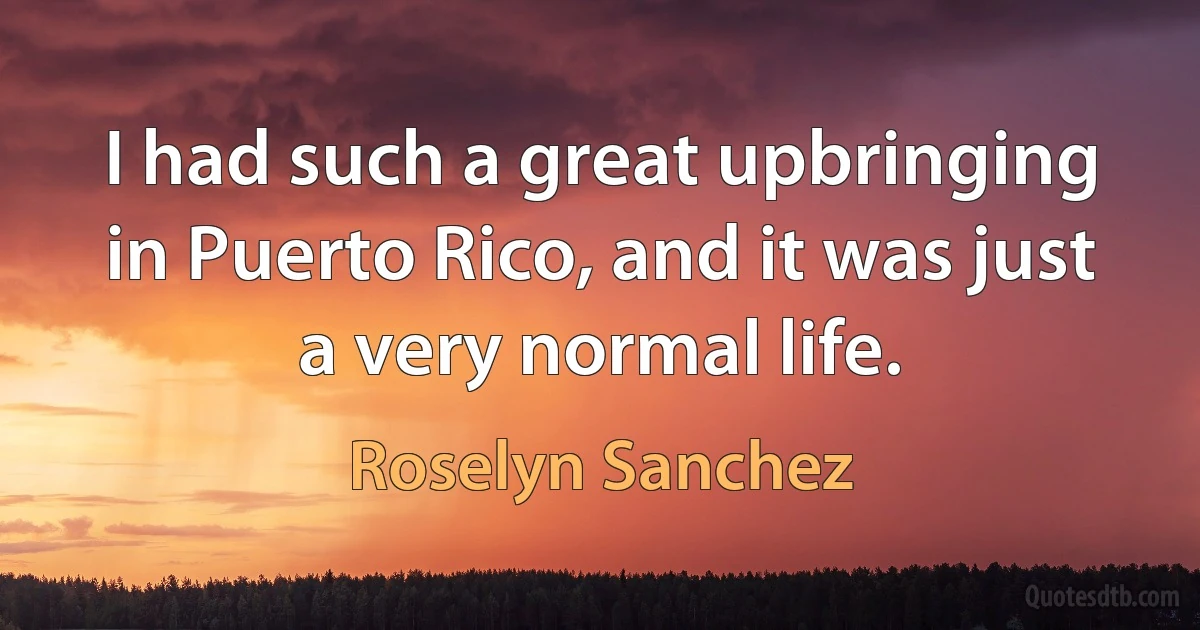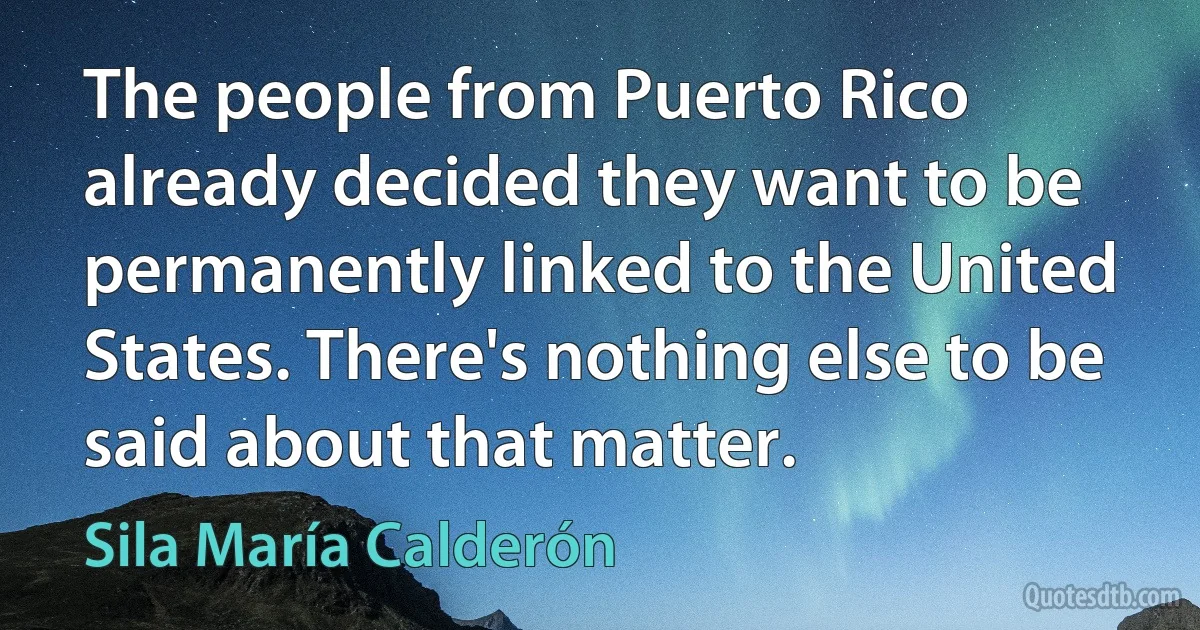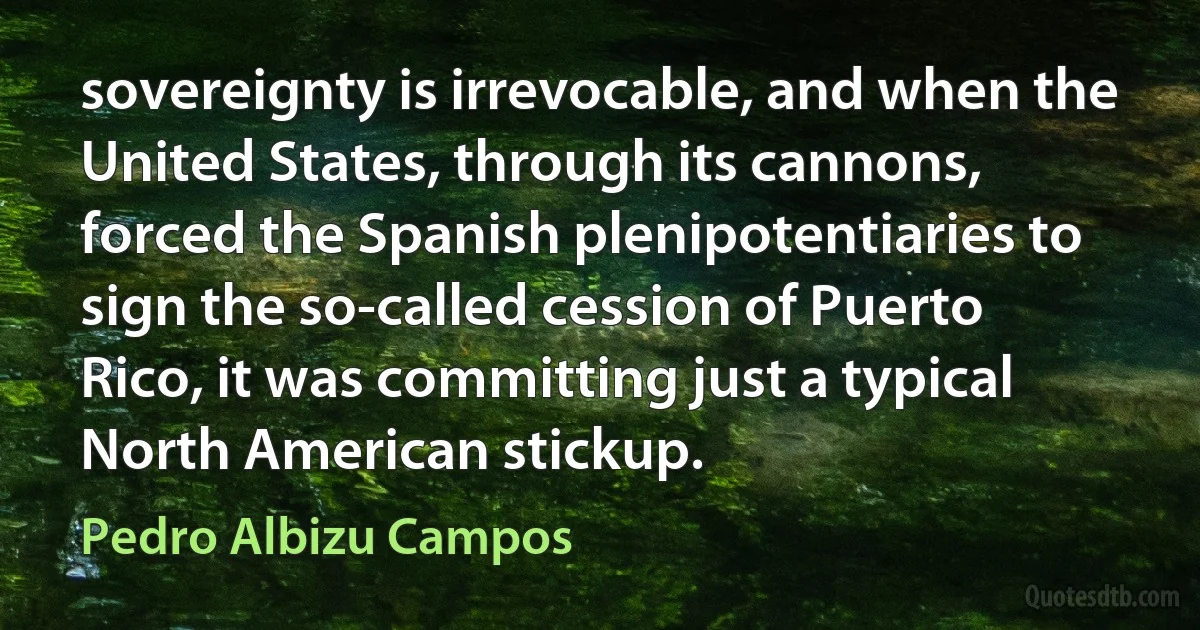Rico Quotes - page 3
He reacts to many things bitterly, this pleasant, smiling young man, who is 32 years old, married now, with two sons, a sports hero here and back home in Puerto Rico. Clemente reacts to things bitterly because he is an honest man, and a feeling one. Baseball has become a game of automatons performing in mechanical ways. Scoreboards now tell you when to cheer. The words "Go-go-go" light up, and you obediently recite, "Go-go-go." A bugle sounds, and reflexively you murmur, "Charge!" Roberto Clemente is a throwback, as are many of his Latin cohorts-which means he has his flaws. Anger can twist him almost helpless with rage. But it has also made him not only a leader of men-automatons are poor leaders-but also a spokesman for his people. He spoke out, during 1966, in an Associated Press dispatch of August 23...

Arnold Hano
We express our solidarity with the people of Puerto Rico and their great leader, Pedro Albizu Campos, who, in another act of hypocrisy, has been set free at the age of seventy-two, almost unable to speak, paralyzed, after spending a lifetime in jail. Albizu Campos is a symbol of the as yet unfree but indomitable Latin America. Years and years of prison, almost unbearable pressures in jail, mental torture, solitude, total isolation from his people and his family, the insolence of the conqueror and its lackeys in the land of his birth--nothing broke his will. The delegation of Cuba, on behalf of its people, pays a tribute of admiration and gratitude to a patriot who confers honor upon our America.

Pedro Albizu Campos
The most important things in my life have been being governor of Puerto Rico and eliminating the old tradition that was established by [former Gov. Luis] Muñoz himself of being a boss. He was the boss of the government and there was no opposition in Puerto Rico. That was the thing I broke to make Puerto Rico a two-party system, a truly democratic society.

Luis A. Ferré
The United States of America will become the United States of Banana. And Puerto Rico will be the first half-and-half banana republic state incorporated that will secede from the union. Then will come Liberty Island, then Mississippi Burning, Texas BBQ, Kentucky Fried Chicken-all of them-New York Yankees, Jersey Devils-you name it-will want to break apart-and demand a separation-a divorce. Things will not go well for the banana republic when the shackles and chains of democracy break loose and unleash the dogs of war. Separation-divorce-disintegration of subject matters that don't matter anymore-only verbs-actions. Americans will walk like chickens with their heads cut off.

Giannina Braschi
Because of anti-blackness in the United States and Latin America, most of us are either hyper-visible or invisible, or both simultaneously. So many people I've had conversations with don't even know that Latinxs are not a race or that black people exist in Puerto Rico (and throughout all of Latin America) and that we don't all look exactly the same. As a light-skinned black Boricua, I'm often read as racially ambiguous, and because of colorism, I benefit from my proximity to whiteness. I think it's our responsibility (those of us who benefit from light-skinned privilege or racial ambiguity or whiteness) to have a reckoning with race, to do the work to actively address institutional racism, as well as racism and colorism in our everyday lives, not just in the public eye. Otherwise, we are complicit.

Jaquira Díaz
In Latino culture the idea of the border is very contemporary. It's very much of our world, its politics are important to us. It's also a part of our emotional relationship to the rest of our family in Puerto Rico, or wherever, and our own relationship to roots-the land of our roots-and where we are now...

Quiara Alegría Hudes
A Puerto Rican writer from New York is doubly dislocated: first, there is dislocation from Puerto Rico; secondly, there is Puerto Rico's dislocation from itself. Puerto Rico is a colony of the United States. It may be a truism that you can't go home again, but it's especially true when home is an occupied territory. A Puerto Rican writer from New York, like myself, is twice alienated. I never forget that in this country I belong to a marginalized, silenced, even despised community; yet, in Puerto Rico, as a "Nuyorican” poet, I am marginalized again, for reasons related and unrelated to the island's colonial status...

Martín Espada
[I]f these islands were to be annexed they would present to us, in the most aggravated form, the difficulty arising from marked differences of race, which occurred already in some of our colonial possessions. Where the superior race was very large in numbers, and the less developed and less civilized race were small, the difficulty was little felt. In Porto Rico, for example, although there was a very large number of negroes-now, happily, no longer slaves-yet the number of Whites was extremely large in comparison, and the slave emancipation had been effected without difficulty. Jamaica was not like Porto Rico. The Whites were very small in number in Jamaica compared with the less developed race.

William Ewart Gladstone
My favorite thing [about Latino television] are the commercials. Because they're always about sex. You don't know what the product is until, like, the last two seconds. It's always some model comes walking out, all sexy, like, [Mimics sexy music] [Feminine voice] "Hola." [Resumes music] [Feminine voice] "Ay que rico!"...And on the 28th second, like, [Mimics female giving a pleasured shout]..."Pepsi." [Audience laughs] And you're sitting there, going, "I gotta go get a Pepsi!"

Gabriel Iglesias
We stand today, docile and defenseless, because, since 1868, our political and economic power has been systematically stripped away by the United States for its own political and economic gain. We stand as a nation forced not only to demand our liberty, but to demand reparations for having our political and economic liberty taken away. We stand as a nation surrounded by industry, but with little of it belonging to our people. The business development in Puerto Rico since the United States intervention should have made the island one of the most prosperous islands in the world, but that is not the case.

Pedro Albizu Campos
there's no money to bring a loaf of bread to Lares, but for a jail in Lares there will be money. So, lots of money for jails in Lares and all Puerto Rico-for schools, yes, because they are to destroy the heart and mind of the Puerto Rican, denaturalize him, prostitute him, corrupt him for that there will be money. There's money to have the Health Department in Puerto Rico inject the youth of Puerto Rico with any disease that the U.S. government desires, to kill them on a long-term basis, there's yes, money for that but to kill hunger in Lares, Jayuya, Utuado, in Comerío, in the whole nation there's not a penny because hunger is the policy of the United States. The yanqui believes that when a human being is deprived of his loaf of bread, he will surrender and humiliate himself to be kicked by anyone. He will turn in his mother, his wife, his own dignity, so as not to suffer hunger. That's the policy of the United States.

Pedro Albizu Campos
The Nationalist Party of Puerto Rico was the first party to raise Guanica, to protest the invasion of the gringos as should be. In these as in many of the struggles for freedom of our people, the Nationalist Party was at the vanguard of its time. The Young Lords Party follows the example of Don Pedro Albizu Campos and the Nationalist Party and declares that for us Guanica is a day of national protest, and will be a day of national protest until we drive the Puerto Rican lombrices like ferre, the Cuban gusanos, and yankee amerikkkans into the sea.

Pedro Albizu Campos
It is a subject for regret that the reforms in this direction which were voluntarily promised by the statesmen of Spain have not been carried out in its West India colonies. The laws and regulations for the apparent abolition of slavery in Cuba and Porto Rico leave most of the laborers in bondage, with no hope of release until their lives become a burden to their employers.

Ulysses S. Grant



